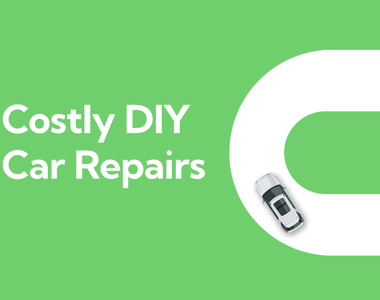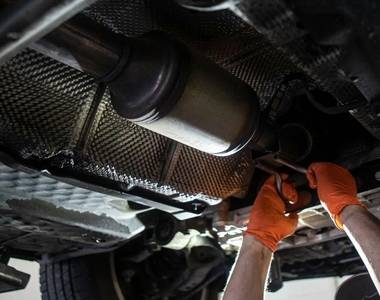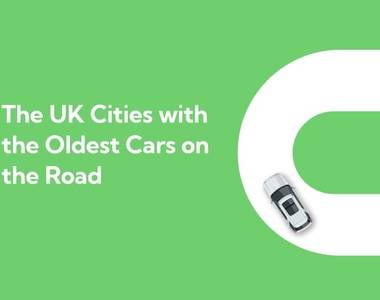While this is definitely a growing trend in how car dealers go about their business, it’s by no means a done deal. There are still many sellers out there who favour negotiation as a suitable sales strategy, so it’s vital you’re armed with the right knowledge before entering into a bargaining situation of any kind.
Research is key to undertaking any negotiation regarding the cost of a car. The more you know about the vehicle you’re interested in buying, the better prepared you’ll be when it comes to haggling. Knowing the actual value of a vehicle is essential information before even considering a purchase - after all, if you don’t know what it’s worth, how can you be sure you are getting a decent deal?
Comparing your desired car against others available on the market is an ideal way to get a good idea of whether an asking price could be unfair. Check your vehicle against what else is on offer. If buying new, you can find this information on the website of your car’s manufacturer, but if used, try to look at other listings too. Study the car for sale against others in terms of age, specifications and mileage, seeing how it measures up in terms of price.
If you need to negotiate on your car sale, don’t worry. With a little advice and doing the proper research, you can ensure it won’t be an ordeal getting the price you want to pay.
Can you haggle with car dealers?
Unless the car dealership in question is advertising a ‘no haggle’ buying policy, negotiation is always an option. Haggling over price at a car dealership can sometimes look like a complicated dance with both you and the salesperson attempting to work out where each of you stand and just where you might give ground.
Always remember there are more instances of haggling in a car sale than just the price of the vehicle. From what features are included in the specifications and what kind of interest rates are available on finance to whether your car will come with a full tank, there can be many points to negotiate.
Pay close attention to what’s listed in the price of your purchase. There may be many options you don’t want and these might be removed later by the dealer but appear as if they’re granting you concessions in cost. This is commonly called a “stacked deal” and one to watch out for.
If you find yourself in a situation where the salesperson states firmly that there’s no negotiation available whatsoever on price, you can still ask for free additions. You’re making a mammoth purchase worth thousands of pounds so don’t feel shy or wrong in asking. At the absolute minimum, the dealership should be able to supply you with accompanying car mats and a tank full of appropriate fuel at little cost. A satellite navigation system or cover in the event of breakdown isn’t outside of the dealership’s authority to grant either and, while insignificant to them, can be a huge benefit to you, making your deal feel more worthwhile.
How to haggle with car dealers
It’s wise before visiting any car dealership and entering into negotiation to be absolutely certain in your own mind of what you’re looking for in a vehicle. Knowing exactly what you want from the car you’re buying will allow you to stand firm in a haggling situation and not be swept up into buying a vehicle you’re not 100% happy with. It’s the job of a salesperson to persuade you into purchasing, but being sure of what you want will take you a big step closer to getting it. The more detailed you can be, the stronger your position will be when the haggling begins.
Remember, it’s part of the car dealer’s job to be friendly to their customers, but at the end of the day, salespeople are goal-driven individuals and the other important part of their employment is to ensure they get the highest price possible for the cars they are selling. In turn, you’ve come to buy a car with the objective of acquiring the best deal possible.
Just as the salesperson will be amiable when dealing with you, it’s important to do the same, even if in this situation you’re opponents. Be polite and friendly at all times, as car dealers can sometimes offer better prices to customers they like than ones that are unpleasant and difficult to deal with.
Stay calm and collected at all times. A cool head in any negotiation is vital, so don’t get annoyed or act rashly.
Car haggling strategies
Finance deals can often be used by dealers for further negotiation, so it’s worth keeping this option at least in theory on the table. If a salesperson knows you’re paying in cash up front, the only money to be made is on the price of the car, which means it’s in their best interest to drive up the price.
If asked how you plan to pay, it’s best to avoid this scenario and keep your options open, so imply that you’re undecided. Finance deals can also be an affordable and less expensive option for buying a car, and it may be worth considering the deal they’re offering.
Up until you commit your signature to the paperwork, you can walk away from any car deal, so feel free not to disclose your payment method until contract time. Until you reach that point in time, how you pay is your concern, not the salesperson’s.
It’s always a smart move to keep as much information to yourself as possible by “playing your cards close to your chest” as the saying goes. If you’re fortunate enough to be offered a better than expected price on the car of your choice, don’t let the dealer see this in your face. Persist with your haggling and you may get an even better deal.
Dealerships can offer better prices on cars they already have in-store, but not letting them know your vehicle is one of them can be advantageous. With multiple features available, it’s uncommon for two cars to be the same. Pick a feature you don’t want that isn’t present on the car you’ve picked and make it a requirement of the sale. The dealer unable to offer you exactly what you want will lower the price further to get you to buy. Of course, since you don’t actually want the additional feature, you will lose nothing from its omission.
Car buying haggling tips
If your individual circumstances allow for it, choose the time you buy your car wisely. October to December is considered by many to be the optimum time for car purchase. This final quarter of the year is when salespeople enter the last term in which they can reach their targets to earn a bonus. During this period, dealerships can be keen to make quick sales to achieve giving you the upper hand when negotiations ensue.
Before going through the trouble of haggling over car price, always ensure first that the vehicle is free to sell. Particularly important with used cars, it’s a good move to run a background check-up on the car in question. The RAC and the AA both offer this service online and with just the car’s registration number, you can discover any outstanding finance deals attached to the vehicle. If the search turns up anything negative, politely withdraw from the sale.
Always do your homework before entering into a negotiation. Make sure you know exactly what kind of car you want to buy and everything you can about your chosen make and model. Know precisely what the vehicle’s accurate market value is for both a brand new or preowned model.
When purchasing a brand new car, you can study up on the manufacturers website for all the information you require, from price to available specifications. Select any optional extras you’re looking for and the trim that best suits your ideal version. Know if you’re after manual or automatic when it comes to the gearbox, and look at the available colours.
When buying a used car, examine other vehicles similar to the one you’re considering and get an idea of the prices commonly asked for. Take into account all aspects, like mileage on the clock and vehicle age when making comparisons to ensure you’re getting a clear picture. If you find similar cars for better prices elsewhere, don’t be embarrassed to take a copy of the listing to your negotiations, as it could lend weight to your side of the deal.
Selecting a dealership in your local vicinity can seem like a convenient and smart decision. If any problems occur, you won’t have far to go to fix them with advice and service close by. This being said, it’s always worth taking the time to shop around and see all the options available to you for your make and model. Even if you do make the decision to stick with your local dealer, being able to present what’s being offered from other sellers might make them reconsider the offer they’re proposing.
If you’re unable to find cars that are similar to the one you’re currently considering for a purchase, there are other methods at your disposal. For example, free access to online valuation catalogues are readily available. These innovative and helpful tools can give you a quick estimate of the worth of the vehicle you’re keen on and allow you to work out if the price the car is being offered at is fair. Typically, you’ll need to input some basic information such as the make and model of the car, along with its age and mileage for an estimate.
Never appear desperate. Your need for a new car may be urgent due to personal commitments or issues, but it’s important not to let this show by rushing. Buying a new vehicle can be an exciting experience, but it’s also the second biggest financial investment you’re likely to make, so don’t get caught up in it and remain level-headed. If a salesperson believes you’re in a hurry and an easy sell, they may take this as an opportunity to offer unfavourable deals.
‘No haggle’ car buying
For many car buyers, the part of purchasing a new vehicle least liked is the tiresome and sometimes stressful negotiations. Haggling is not a skill that comes naturally to everyone.
Some car dealers are coming around to this idea and taking advantage of an increase in sales by advertising ‘no haggle’ car buying.
You may be wondering if this lack of negotiating stated is just a tool for drawing in business and that once inside the dealership the haggling will begin. This is rarely the case for two reasons.
Firstly, untrustworthy dealings will spread fast and reduce incoming business, and secondly, a company stating no haggling and then haggling will be operating unlawfully and need to answer to trading standards.
No-haggling car buying can be an easier approach, avoiding what can be an unpleasant and confrontational experience, but it’s important to still carry out your research and never pay more than is fair for your car in comparison to other similar vehicles offered elsewhere.
It’s also advisable to watch out for extra services you might be offered at a cost to yourself. Although the car has a fixed price, the dealer is likely to try and sell you a variety of add-on products such as finance agreements, services and extended warranties.
If you aren’t interested in these dealership options and aftersales, remember to stand firm and don’t be talked into anything you don’t need or want to purchase.











